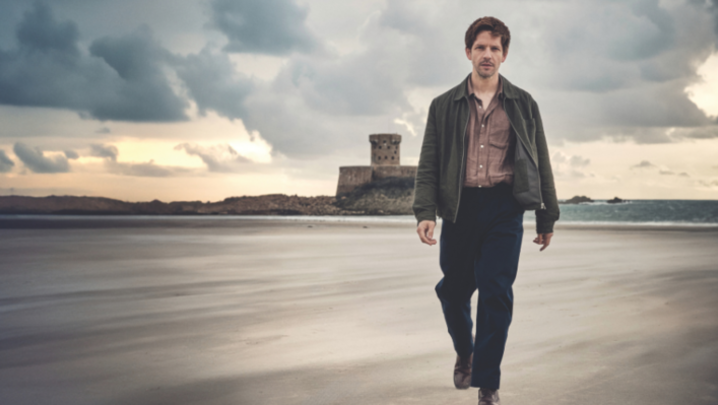Saad Mohseni – Afghanistan’s first media mogul – tells Raymond Snoddy how he built his empire
Saad Mohseni, Chair and Chief Executive of the Moby television group, has been called the Afghan Rupert Murdoch, and, despite obvious differences in scale, the comparison is far from crazy.
There are many obvious echoes. With his siblings, Mohseni has built from nothing an international media group operating not just in Afghanistan but in Iran, Ethiopia, India and the Middle East, and which is increasingly targeting sub-Saharan Africa.
His flagship Afghan channel, Tolo – Dawn – is the biggest television station in Afghanistan and, overall, the company produces nearly 7,500 hours of content a year and dubs a further 4,000 hours into six languages.
The London-born Mohseni, who is 50, was brought up in Australia after his diplomat father was exiled following the Soviet invasion.
He has obvious drive and curiosity, and is willing to take risks and challenge taboos – particularly in Afghanistan – on the role of women on television and in society. Mohseni even set up his own football competition, the Afghan Premier League, and then televised it.
The most obvious link with Murdoch is that 21st Century Fox has a 48% stake in Moby, which has revenues of around $80m, and is backing the group’s expansion in some of the world’s most challenging television territories.
A small story from a decade ago illustrates both the optimism and the darker side of Afghanistan.
An Irish-American journalist, Stephen Landrigan, decided in 2005 to put on the first production of Shakespeare – Love’s Labour’s Lost – in Dari, the Afghan dialect of Persian.
The open-air production in Kabul was a sensation. Mohseni couldn’t go due to work but his wife, Sarah, did.
“We gave it a lot of publicity. It was on our news. It was a great thing because it had these women performers,” says Mohseni. Later, the husband of one of the actresses was murdered because his wife had appeared on stage with men. She, meanwhile, had to flee to Canada with her children.
Is that how it inevitably is in Afghanistan? “I am not saying that we have to make sacrifices but, unfortunately, it is never going to be smooth, and Afghanistan has many issues to deal with,” Mohseni concedes.
Moby and its staff are considered military targets by the Taliban and, in January 2016, seven production workers on the company’s news channel were killed and many seriously injured in a suicide bombing in Kabul.
Did it shake his resolve? “Not really,” says the Moby Chairman. “You become more determined to do what you need to do. Afterwards, you reflect on what you have done and ask whether we will ever emerge from any of this. When will we see the light at the end of the tunnel?”
Some light, at least, is being shed by modern media, which is playing a modest part in modernising his country. This year is the 12th season of Afghan Star, the local equivalent of Pop Idol or The Voice. Mohseni is delighted that, for the first time in such a conservative country, millions of Afghans have voted a woman into the final.
“You do have some battlefield losses but, in the bigger picture – what is happening to the country, the people – we have made a lot of progress since 2001,” says Mohseni.
He notes that showings of Sesame Street have attracted an “extraordinary” number of adults, watching with their children. From the show, adults learn about the importance of children going to school. “The impact of the sort of things we are doing will be incremental, but they will be real and, when combined with a whole series of other things, will help to change society – whether providing female role models in soap operas or as singers, doctors or reporters,” he argues.
He sees no conflict between making money and being an agent of modernisation. In India, for example, Moby has actively defended and promoted the rights of the LGBT community.
The Moby executive accepts that he probably “pushed the envelope” too hard in the early days on women’s rights and attacks on corruption. The approach led to raids on the company’s offices and people being beaten up. His brother Zaid, a lawyer, who runs the operation in Afghanistan, was among those arrested.
Mohseni is based in Dubai but is in Afghanistan most weeks. “Once you get into the rhythm of things, it gets a lot easier,” he says, noting that the Western-educated President Ashraf Ghani is more liberal than his predecessor President Hamid Karzai.
Barbara Gibian, an American lawyer who worked in Afghanistan on a US programme that invests in small Afghan businesses, knows Mohseni well and describes him as charming, smart and full of himself.
“What they have done is really remarkable. They have persevered in spite of a lot of difficulties. They have pushed the limits and, I think, have been very good for Afghan society and for women,” says Gibian.
Programmes that work well in Afghanistan include local versions of Yes Minister, The Office and Deal or No Deal.
Young men – and the average age of Afghans is 18 – like programmes such as 24 and Homeland, but soaps, particularly from Turkey and Korea, go down well throughout the region. “For men, it’s action. For women and families, its drama – divorces and break-ups every three minutes. It’s got to be a lot spicier in terms of the storyline,” says Mohseni – although, overall, a certain amount of covering up of flesh is required.
Moby is a media company created partly by accident. After the fall of the Taliban in 2001, Mohseni, who rose through the ranks at Australian stockbroker Bell Potter, and his siblings were looking for opportunities in Afghanistan. They were able to launch the country’s first commercial radio station, playing Afghan and Western pop, in a country where music had, until recently, been banned.
A key figure in the growth of the company has been Tom Freston, the former Viacom CEO, who lived in Afghanistan in the 1970s. Mohseni calls Freston “the godfather” of the company.
It was Freston, who remains on the Moby board, who introduced Mohseni to Murdoch. And, extending the web of relationships, it was Mohseni who recommended Vice Media founder Shane Smith to Murdoch, who then bought a 5% stake in the news company. Now, Moby is in a joint venture with Vice and plans to launch a Vice service in Arabic this summer aimed at the Middle East.
Moby has linear channels but uses online and mobile to reach audiences. Even in Afghanistan, people are increasingly using mobile devices.
In Iran, Moby gets hundreds of thousands of viewers via VPNs (virtual private networks – which allow users secure access to services over the internet) and a weekly show that has more than 1 million followers on Instagram.
Although linear television will remain important, Mohseni says that Moby is becoming increasingly platform agnostic. “What we have learned across the region is that we have to cut different versions for different platforms,” he explains. For an individual programme, this can mean 30 seconds for Instagram, two minutes for Facebook, a six-minute version for YouTube and then 30 minutes for satellite.
Mohseni believes that Moby has big opportunities in these developing markets and is convinced that a portfolio of media assets across a dozen countries, where advertising is growing rapidly from a low base, will bring a good return on investment.
“If you get it right, it could be amazing – but you have to be prepared to sweat,” says the Afghan Rupert Murdoch. And face some risks that few others would be happy to take.







